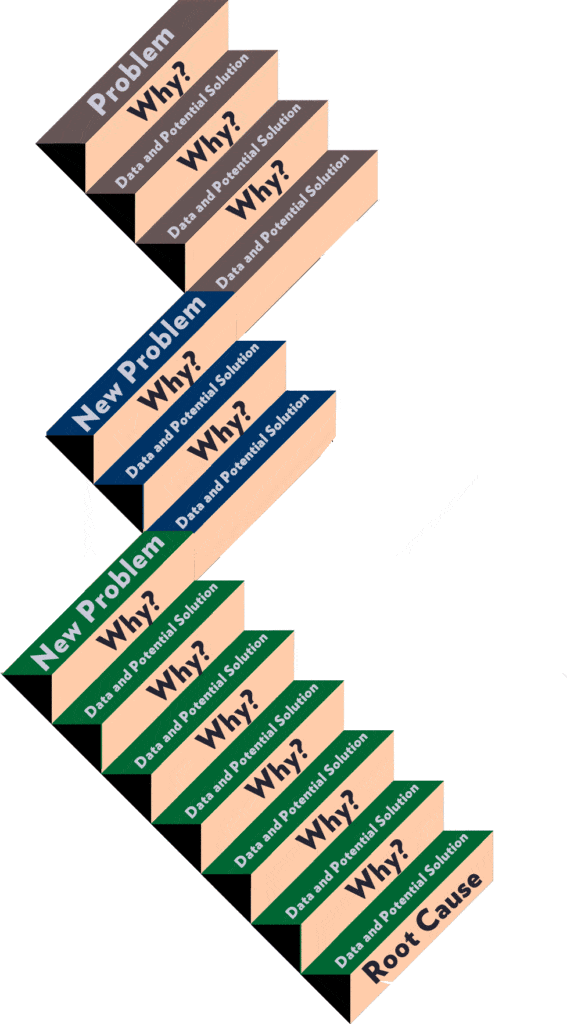
Four things a bad leader says and how to fix them.
They’re getting paid…why can’t people just do their jobs?
Why do people just give me problems and no solutions?
I’ve been doing this for X years…
We just need to find that rockstar employee/assistant/office manager/salesman etc.
They’re getting paid…why can’t people just do their jobs?
There’s an assumption out there that everyone should be as motivated as you are, that they should have an “ownership mentality.”
It shouldn’t be hard to understand that people who aren’t owners don’t have an ownership mentality.
Ownership means sacrificing and caring.
It may seem hard to believe, but many people don’t care about their jobs. They come in to punch the clock and leave at the end of the day to go do what they really want to do.
It’s not as if these people don’t have passion; you probably wouldn’t recognize them if you ran into them at a place they chose to go. It’s just that they don’t have a passion for work, or at least for the job that they have now.
If you’ve said this phrase before then you have a problem of motivation.
The solution: competition and incentives.
If you want to inspire an ownership mentality, find some way to give your team ownership.
Most people, and animals for that matter, need to be incentivized to complete a task that requires effort. It’s unlikely your dog will learn a trick just because you really, really want him to. (I feed you, isn’t that enough?)
For a lot of people salary is just the incentive to get out of their house and show up to work.
While the specifics are different for every industry, there is always something that can be made into a scorecard.
Competition brings out the best performance in people.
Knowing there’s someone out there who may be better unlocks this primal human social instinct to achieve.
Top-ranked tennis players get beaten by under-ranked players pretty frequently.
Competing head-to-head can bring out performance from your team that they didn’t even know was there.
Depending on the circumstances it may be beneficial to post the scorecard publicly so everyone knows where they stand. The downside of doing this is it encourages a dog-eat-dog environment, which, while great for individual salespeople, doesn’t create the right atmosphere for a team.
It’s a balancing act to ensure that even the people who aren’t the clear winners are rewarded for the effort and improvement they made.
You have to determine what game you’re playing before you make the scorecard.
Is this a team game like basketball or an individual sport like tennis?
Basketball gives credit for an assist while tennis only recognizes the winner.
The scorecard doesn’t have to apply to discrete values like sales numbers. Why not give people credit for a good customer service interaction or allowing to a team member to recognize a colleague who goes above and beyond?
Which leads to the question: what’s in it for me?
Asking that question doesn’t make your team ungrateful, it makes them human.
Why did you decide to start a business or take on a position of leadership in the first place? It certainly wasn’t for the carefree lifestyle; you did it because you wanted something out of it.
What you can offer people is dependent on your specific situation. If you own the business you have a lot more flexibility to offer a money bonus or profit-share.
What if you are in a position of leadership but work for someone else?
In the Bible of leadership, How to Win Friends and Influence People, you’ll learn that people want the feeling of validation and being appreciated as much as they want the actual reward.
Consider creative solutions that don’t cost a lot. The more public the declaration, the more they will appreciate the feeling more than the object.
Why do people just give me problems and no solutions?
This answer is similar to the question above but with a different root cause: you have unclear expectations or a lack of problem-solving skills.
What role did you hire these people for? Did you hire them to be strategic thinkers?
Be thankful they’re even telling you anything. There is rarely an incentive for people to speak up at work about problems.
Look at the military. Would you expect a General to go to an enlisted private and ask them to solve a strategy problem?
There are people who write the instructions and there are people who follow them. It’s an easier job to follow directions than to come up with them.
People who follow aren’t leaders, you are! It’s your job to come up with solutions.
So what’s the solution?
For starters, appreciate that you have people who are willing to talk to you. They may not know they’re doing it, but they care enough about you and your organization to take a personal risk to try to make things better.
That’s someone who’s worthy of thanks, not exasperation.
Next time someone comes to you with a problem, make sure that they know that you appreciate them taking the leap to make things better.
This is where root cause analysis, or in medicine, a diagnosis, comes in.
Anyone who knows a three-year-old can figure out this process: just keep asking why.

Each step down the why staircase will yield some solutions you can try. The further down you get, the more the potential solutions will eliminate the problem permanently, not just on a repetitive one-off basis.
Sometimes when you get to one step it forks off into a different why staircase you weren’t even aware of.
Here’s an example: